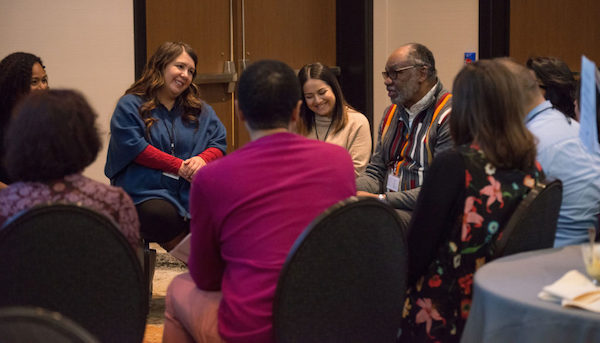I’ve long abhorred calls for “national conversations” (hereafter, NC) because they are usually broad, duplicitous, and very partisan.
Suggesting an NC about a topic is an overused cliche, used mainly by intellectually lazy progressives, fearful that the wrong people are having local conversations.
Topics deemed worthy of NCs these days run the gamut and recently include race, abortion, mental health, guns, high-speed rail, wildfires, reparations, pit bulls, drinking during the pandemic, obesity. and football.
When someone demands an NC, they don’t want an actual argument; they’re conveying that said issue is far too serious for regular Americans to ignore.
Ironically, as calls for NCs become more worthless, they occur more rapidly. A 2015 study showed the term “national conversation” was used three times as often as in 2000, 2005, and 2010 combined.
Most NCs are one-sided and frequently emanate from the gutters of Facebook, Twitter, TikTok, and Instagram. And with a White House increasingly owned by the online hard left, we, unfortunately, will continue to hear the inane suggestion.
Please realize that calls for an NC are not intended to provoke an actual one. It is a call for you, the Philistine, to sit with the master and soak in his wisdom. The elites want you to hear what they deem the correct answer, even though the elites are usually the least informed and most intolerant.
Tellingly, calls for everyone to be talking about a singular topic often are a clever diversionary tactic to keep people from talking about a similar but less comfortable topic.
When Vox called for “normalizing conversations about mental health” after Pennsylvania Sen. John Fetterman checked into Walter Reed Medical Center for depression this year, it ignored a more important reality that Democrats and his cruel wife forced a sick man into office, despite knowing he would suffer.
NCs are regularly pushed by the most sheltered and disingenuous among us.
The debate technique of Kamala Harris used during her failed presidential campaign was responding to questions by demanding America needs to have a “conversation” about the topic. When a town hall attendee asked Harris if murderers and terrorists should be allowed to vote from prison, she odiously replied, “I think we should have that conversation.”
Centralizing our discourse is ultimately futile. People in different parts of the country rightly will discuss issues important to them in a way they deem appropriate. Americans should keep having personal conversations about local issues.
In fact, we need millions of local conversations with friends, family, and the community. Regular citizens are more likely to be convinced by arguments from people they know than by sanctimonious NPR reporters telling them what to think.
Seeking to nationalize conversations is tempting at a time when local news can take on national importance. Liberals think their children will face some sort of gun violence at school, and conservatives believe their kids will face drag queen strippers at the public library. So, do we need a “national conversation” about it to save America? No.
Berkeley and Madison residents may want Dylan Mulvaney perverts on every block, but people in Amarillo and Minot likely do not. If, for example, my office has no issues with race relations, why overwhelm us with diversity and sensitivity training?
Have your conversation with a pastor or rabbi. Write a letter to the editor. Start a text thread with your buddies. But ignore the central planning technocrats and instead talk about whatever you want, with whomever you want, and whenever you want.
cc
Ari Kaufman is a correspondent for several U.S. newspapers and magazines from Minnesota and Ohio to Tennessee and Virginia. He taught school and served as a military historian before beginning his journalism career. He is the author of three books and a frequent guest on radio programs and contributes to Israel National News and here at The Lid.
cc






